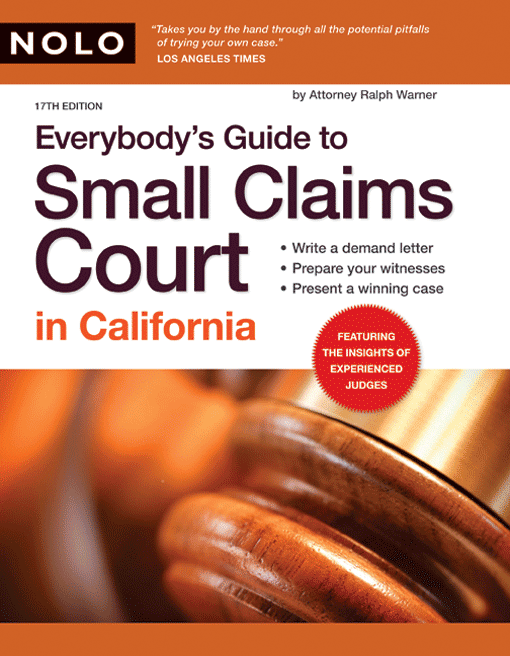What You Need To Know About Los Angeles Small Claims Court
Small Claims Court is thought to be easy and cheap, and it is when compared to going through civil court. Nevertheless, small claims court is not as easy and inexpensive as it should be.
A major benefit of small claims court is that you do not need a lawyer. In fact, lawyers cannot represent anyone in small claims court. It’s cheaper to file a suit, the process is streamlined and your time in front of a judge or commissioner is typically very limited.

You’ll need to pay a small court charge and pay a registered process server to serve the debtor in order to begin a small claims case. You should arrive in court with respectful casual attire and fill out the appropriate paperwork. You may be able to download and fill out the forms on your computer.
There are drawbacks to using small cases court, however, like the inability to perform pre-trial discovery. There are also limitations on the situations you can sue for, and how much you can sue for.
- A small claims judge will determine the financial amounts and may order property given back to you. If your small claims case is appealed by the debtor, the defendant can then have a legal representative represent them in the appeals court.
- If the amount the debtors owe is less than $300, it’s probably best not to sue as it will probably cost you more money to go through the process than you make back from your case. If the amount the debtors owe is less than the cash limitation of the little cases court, utilize the small claims court.
- If the amount the debtor owes is less than twice the financial limitations of the small claims court, you should use the small claims court as it is less expensive than civil court.
- Small claims cases are not used for foreclosures, or in circumstances where the debtor owes an excessive amount of money.
How To Start A Small Claims Case
If you decide you meet the requirements and think small claims court is your best means of recourse, here are a few tips:
- Hire a registered process server to serve the defendant and make them aware that you are suing them.
- Find out all of the defendants names and addresses. A process service company can help you with this or you can do it on your own.
- Do not start enforcement actions until the time restriction to appeal the judgment ends. Enforcing a judgment prematurely might encourage the debtor to appeal the judgment.
- Find out the debtor’s bankruptcy status. If you find out that the debtor has filed for bankruptcy protection in the last several years, you shouldn’t continue your lawsuit until you find out the status of bankruptcy.
Obviously, winning your judgment is only the start of trying to collect. First, contact the debtor by mail with a formal letter and offer to work with them on a payment plan or a settlement. Settling out of court might make sense as you avoid the expenses, disappointment, and delays of enforcement. Be sure to be courteous to the debtor at all times. In the event you do end up in court, you don’t want to have negative comments made about you.
If you have the time, patience and wherewithal, you can attempt to secure the judgment yourself. Use your local court website and other resources to find ideas from others who have succeeded doing it on their own. Keep in mind there will be costs involved with every action. To prevent the expense and hassle, you may find it easier to hire a judgment enforcer to recover your judgment.
If you do wish to enforce your judgment yourself, your best weapons are discovery of the debtor’s assets and garnishment or levy of their wages or assets. To find the debtor’s possessions, you can pay the court, pay a process server or subpoena the debtor to appear in court and bring the documents you request.
You can likewise use the Web. Google your debtor and find them on Facebook. They may inadvertently provide you with the information you need. You can also search public records such as past bankruptcies and property records
Once you “discover” assets, find out as much as you can about them. For bank accounts, you need to know which bank and branch the debtor uses, and if you plan to garnish their wages, the name and address of their employer.
To levy the debtor’s possessions, you’ll need to pay for a Writ of Execution from the court and for delivery from the Sheriff or a process server. If your efforts to impose your judgment fail, consider finding a judgment enforcer. No judgment enforcer can ensure they can recover money from a debtor, but they are only rewarded for money they get you back.
Once you have recouped sufficient money from the debtor to pay you what is owed, submit a Fulfillment Of Judgment with the court to close the case.
If you have any questions about starting the small claims process or need your legal documents served by professionals, give us a call at (866) 754-0520 or fill out the form below.
